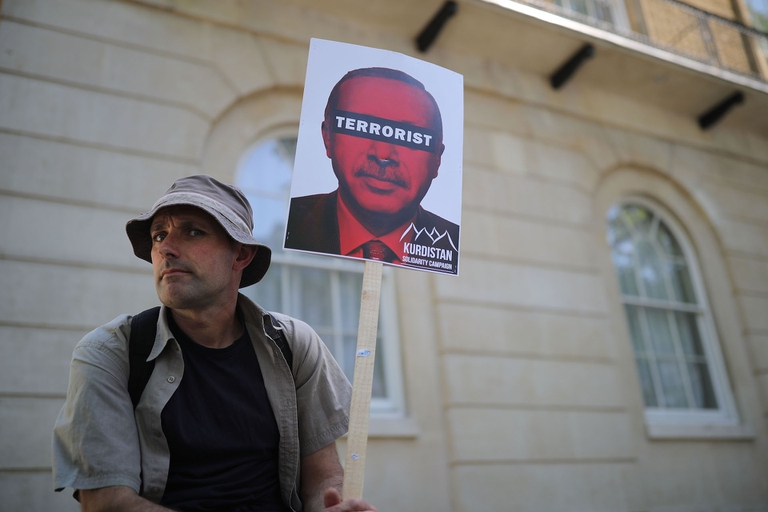https://www.lifegate.it/italia-turchia-accordi
- |
- Italy and Türkiye have signed agreements on various issues, including gas.
- Currently, Turkey is the third largest gas supply route.
- The meeting also discussed wheat and migrants.
A year ago he defined it "dictator" with which one must find a balance between the frankness of dissent and the need for cooperation.This is how it went:the prime minister Mario Draghi flew in Ankara to make a series of agreements, nine to be precise, with the President of Türkiye, Recep Tayyip Erdoğan, now his “friend and ally”.
At the sultan's court we talked about gas, of relations with Europe, of crises in Libya, of unblocking foodstuffs in Ukraine, of immigration.An intergovernmental summit that had not been seen between the two states for ten years and which ended with a specific economic objective:Erdogan has spoken of increasing the value of trade between Italy and Türkiye from the current 19 billion dollars to 25 billion.

Türkiye, gas partner
Turkey is the first partner for Italy in the Middle East.Ankara is also an important energy counterpart:the Tanap gas pipeline (Trans-Anatolian Pipeline), which connects with the TAP, represents the third gas supply route for our country after those coming from Algeria and Russia.
At the press conference, Erdogan mentioned the great cooperation between the two countries, the joint work on the Sakarya gas field and other joint projects.The two delegations - as explained by the Evening courier – have tried to take steps forward to encourage it exploitation of gas deposits already discovered, the transport of the gas itself, the drillings of new possible objectives.There was also discussion about a large Israeli gas field that could pass through Turkish territory before being conveyed to Europe, although there are still too many uncertainties.
The problem of wheat and migrants
But the gas one was just a hint.During the press conference at the end of the meeting, Mario Draghi explained other details of the exchange.“There is no need to demine the ports, they have been identified safer corridors”, said the Italian prime minister regarding the creation of one “wheat street” to restart food exports from Ukraine.“The working group in which Turkey has a central role must ensure there are no Russian attacks and that the ships do not carry weapons,” he added.
And then the migrant node.“The management of immigration must be humane, fair and effective,” explained Draghi.“We try to save lives.But we must also understand that a country that welcomes can no longer take it.It is a problem that Minister Lamorgese (Italian Interior Minister, ed.) has posed in Europe, he said it here and we will tell Greece when we meet it.Maybe we are the least discriminating and open country, but we too have limits and now we have arrived there”.
Draghi's words suggest a tightening of the Italy-Türkiye agreement of 2016 to block migrants at the gates of Fortress Europe:Turkey, in fact, it is paid by European states, including Italy, to prevent those who want to reach the Old Continent from finding refuge in European territory (Italy has signed a similar agreement with Libya for the rejection of immigrants coming from North Africa).
Renewables and civil rights are missing
Reacting to Draghi's words, Erdogan explains that "Greece has also begun to be a threat to Italy", as it "repels migrants to the Aegean", who must find other refuge in the Mediterranean, including Italy.Beyond that Italy - as demonstrated by the data – it is not experiencing any migrant emergency, the Turkish leader – whose foreign policy on migrants she has always been unscrupulous (let's not forget that Turkey itself forcibly pushed Syrian migrants in Greece) and the internal one is aimed at persecuting and imprisoning political opponents – does not talk about the immense methane interests in the Mediterranean.In fact, Erdogan criticizes the East Med methane pipeline project, which will have to start from Israel and pass through Cyprus (a territory disputed with Greece) and Greece, but which according to the Turkish leader violates Turkey's exclusive economic zone.
In short, what aired in recent days between Italy and Türkiye was yet another stage on which to stage a political farce for economic purposes.Of civil rights and renewable energy, however, there was no talk.
